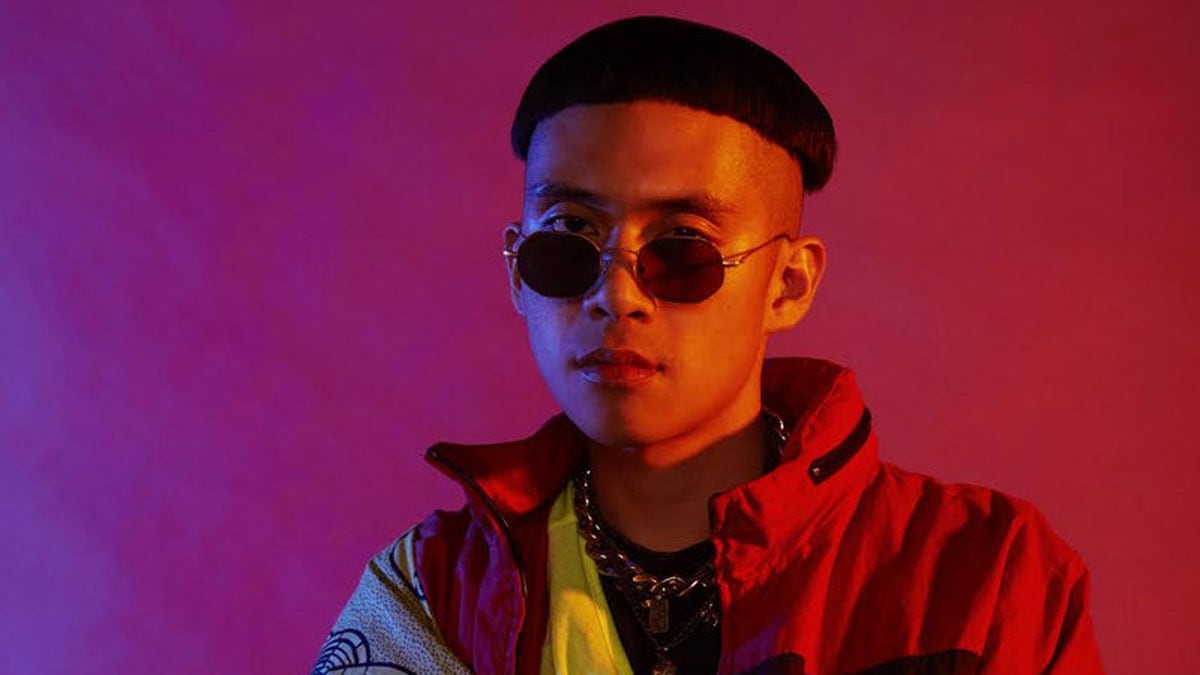Before he transformed into a one-man band with eye-grabbing personal style and a gender-twisting pseudonym, Harriet Brown was just a churchgoing jazz kid with a library card.
"I would often go to the public library, borrow the limit of CDs, take them home, burn them, and bring them back to get more," he recalls over email. "There's this Mingus song called 'A Colloquial Dream,' which was a bonus track on a CD I found on one of my excursions. I remember hearing that song for the first time, listening back to it a couple of times and thinking, 'I have to play music, there's nothing else I can do.' "And then I applied to college as an architecture major."
Growing up in a devoutly religious home, the son of "American Dream-chasing immigrant parents" from the Philippines, Brown initially allowed himself to get nudged toward a more "practical" career. After two years of study, he eventually "came to," and started chasing his own dream. But even then, Brown—he prefers not to disclose his birth name—ended up miles from where he started, as a literal choirboy playing guitar in a high school band.
In L.A.'s revivified funk scene, the 26-year-old Bay Area native is emerging as a potential torchbearer. On his debut full-length, Contact, Brown triangulates early Prince, a grown, sexy Janet Jackson and Mr. Contact himself—Carl Sagan, if you're nasty—connecting the corporeal, the spiritual and the extraterrestrial through vintage synths, bangin' drum machines and the occasional ripping guitar solo. And he does it while rocking a look best described as Lloyd Christmas-meets-new jack swing.
Understandably, the transformation didn't happen overnight. Following a three-month, post-college backpacking trip through Europe, Brown returned to the states with "a pretty empty, stuck feeling regarding music," he says. He'd been playing with other people, which meant playing the music other people wanted to play. He wanted the freedom to wander, to futz around and figure out exactly what kind of artist he wanted to be.
Moving to Los Angeles helped. Armed with a raft of electronic instruments he'd never really messed with before, Brown took advantage of the city's isolating nature, bunkering down in a home studio and honing in on the Harriet Brown persona. His first EP, 2014's New Era, is the result of that initial tinkering, and while clearly more rudimentary than the music to come, it showcased his shape-shifting vocals and ability to create lush worlds out of just a few elements. A friend dubbed his sound "romantic funk," mostly as a joke, but the blogs ran with it.
"To get a little nerdy on you, I think his original reasoning behind the term wasn't so much meaning 'romance' plus 'funk,' but more romantic in a musical or classical or artistic sense," Brown says. "Funky, but favoring harmonies reminiscent of that era of Western classical music."
While many of the songs were written around the same time as the EP, Contact represents a full evolutionary leap forward. It's an album of familiar grooves colored with odd sounds. Although Brown wears his influences on his hypercolor sleeves, he manages to evoke them while sounding like he's broadcasting from another planet—like an alien reinterpreting transmissions of '80s R&B radio and beaming them back to Earth.
Appropriately, the struggle to communicate factors largely into the lyrics. On the levitating ballad "Mother," Brown compares himself to a "super-massive black hole, pulling in the weight of our world/All because I didn't get that call back." A sense of Digital Age loneliness—that feeling of being connected to everyone and no one at the same time—permeates even the album's more playful moments. Musically, though, Brown says he's content to continue going it alone. For right now, anyway.
"I definitely relish having complete control over my work, and probably will continue to do so forever—this is a big part of what Harriet Brown is, by definition," he says. "But that doesn't mean that I wouldn't bring on a band or something when I get the opportunity of being in a position where I can comfortably work with the exact players I know I need and want to execute a certain vision. I'm not yet in that position."
Harriet Brown plays Doug Fir Lounge, 830 E Burnside St., with Nite Jewel and Geneva Jacuzzi, on Saturday, July 8. 9 pm. $14 advance, $16 day of show. 21+.

